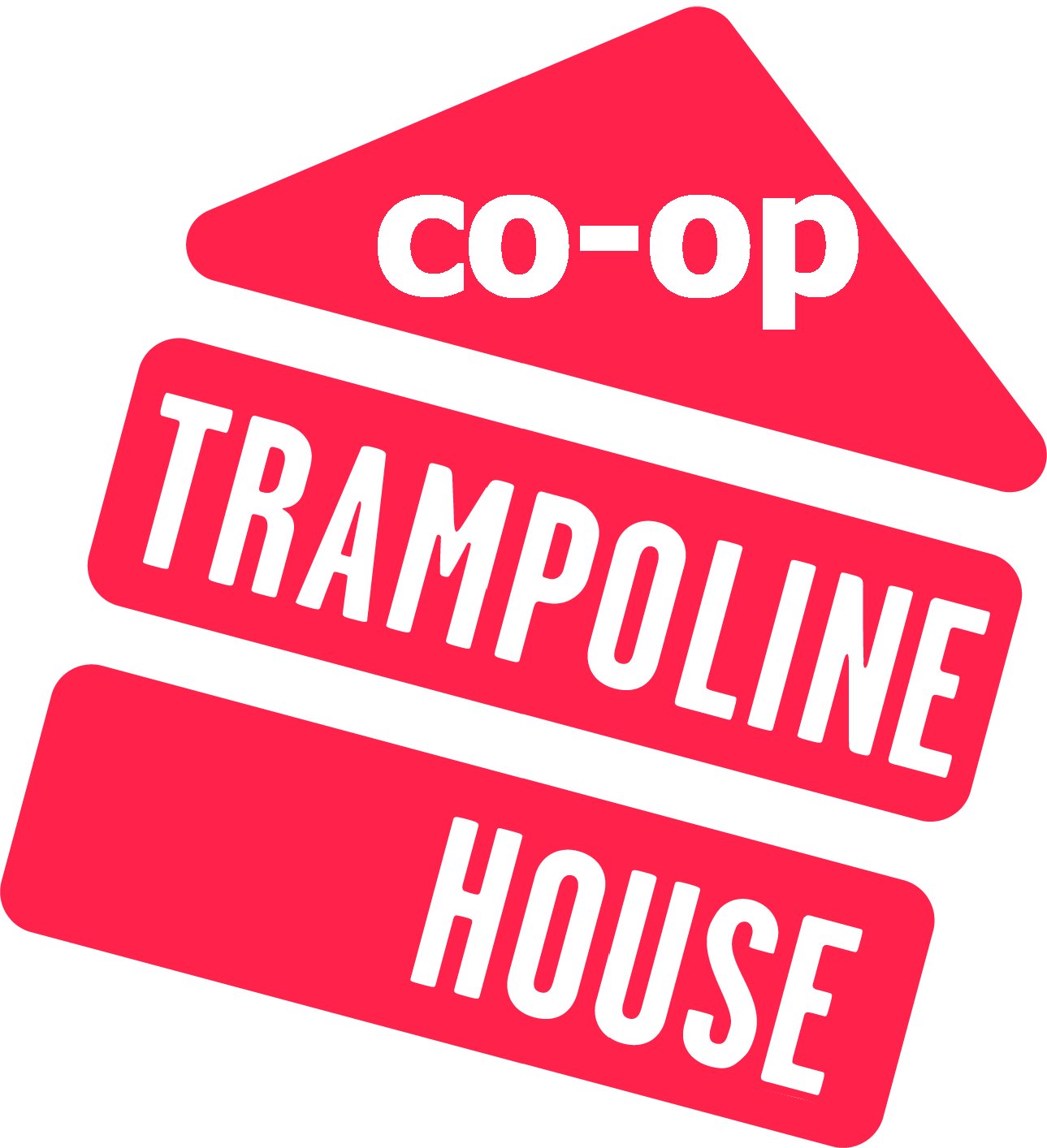Dear friends of Trampoline House,
It is with a very heavy heart that we have to announce that Trampoline House will not reopen in the new year, but will close permanently at the end of December. The coronacrisis has hit the house's economy hard. In addition, a number of funding applications that were to finance two new socioeconomic programs in the house in order for it to become more sustainable were recently rejected. So after 10 years of operation, Trampoline House's board and management see no other option than to close down the house.
We have fought hard to save the house and have received help from many sides. First and foremost from private donors, various foundations, and companies. And most recently from 95 artists who in August donated works to a large art auction in support of the house at Charlottenborg's Festival Hall, which we arranged in collaboration with Bruun Rasmussen Auctioneers and Kunsthal Charlottenborg. But the help has unfortunately not been enough to secure the future of Trampoline House.
The closure of Trampoline House is a huge loss for all of us. First and foremost for the hundreds of refugees, asylum seekers, and disadvantaged ethnic minority citizens who have visited the house every week to get legal counseling, learn Danish and English, do internships and job training courses, meet new friends, and form networks. But also for the many volunteers and educational interns, who over the years have contributed to the house's operation and program. And for the large number of friends and guests, who have regularly visited the house to take part in our events and unique community. We will now all lack a place where everyone can meet as equals and take action despite our unequal life situations!
But we are proud that we managed to keep Trampoline House running for 10 years, during which time the house has made a tremendous difference for some of the most marginalized people in Denmark. Many users have received help with their asylum or family reunification cases, and numerous new groups, art projects, and campaigns have sprung up from the house. Thanks to the efforts of the many users, volunteers, interns, and staff members who have contributed to the house over the years, Trampoline House has provided a unique platform for visionary experiments with democracy, social cohesion, and equal meetings between people in unequal life situations.
Many of Trampoline House's users and employees will no doubt take some of the house's methods and concepts with them on their further journey. We are also some who will try to work further on rethinking Trampoline House in the hope of being able to reopen it in a new and more economically sustainable form in a few years.
For information, we will keep Trampoline House's website and various SoMe platforms live. Here you can find articles and videos, activity programs and event calendars. The website and SoMe platforms form an important archive of the house's history, mission, programming, and methodology.
Thank you all very much for your support over the years and a very happy new year!
Later,
Morten (CEO) & Tone (Program director)
HISTORY:
Since Trampoline House was formed in 2009–10 as an art project by a large group of socially engaged artists and asylum seekers, refugees and refugee rights activists, the house has functioned as a community center for some of the most disadvantaged people in Danish society. In the house, children and adults who have had to flee their homes to escape war, poverty, or human rights abuses have been able to find ways to participate in their new host country and once again feel that they belong somewhere. It is not so easy to feel welcome when, as an asylum seeker, you are accommodated in an asylum center or a deportation center, or when, after many years of waiting for asylum, you are granted a residence permit and have to fight to find a place in society and the labor market.
Over the years, Trampoline House has offered legal counseling, language classes, employment courses, children's club, women's club, workshops, debates, art exhibitions, and cultural events. All under one roof! And once a week, we have held democratic house meetings, where all the house's users, volunteers, and employees have exchanged news and discussed topics related to the house's operation and the challenges that refugees, asylum seekers and minority citizens face in Denmark.
"Trampoline House has during its existence had a very special significance for the asylum seekers at the Danish Red Cross asylum centers. Regardless of the offers at the asylum centers, many asylum seekers need activities and communities outside the centers. Here, Trampoline House has had a very special, valuable role thanks to the very engaging and respectful approach that the house has always had. Trampoline House has been an invaluable sanctuary for its many users and a competent and important player in the asylum area, and the Danish Red Cross has greatly appreciated the collaboration.”
– Anne la Cour Vågen,
Head of the Danish Red Cross' Asylum Department
“There is no doubt at all that Trampoline House has made a huge difference to the people who made use of the house. But Trampoline House has also had a more general significance for our society by meeting asylum seekers and refugees as equal citizens in a democratic meeting. And I hope – and this is also was is sense – that the established system has been inspired by the equality that has always been Trampoline House’s foundation.”
– Johanne Schmidt-Nielsen,
Secretary General of Save The Children, Denmark




